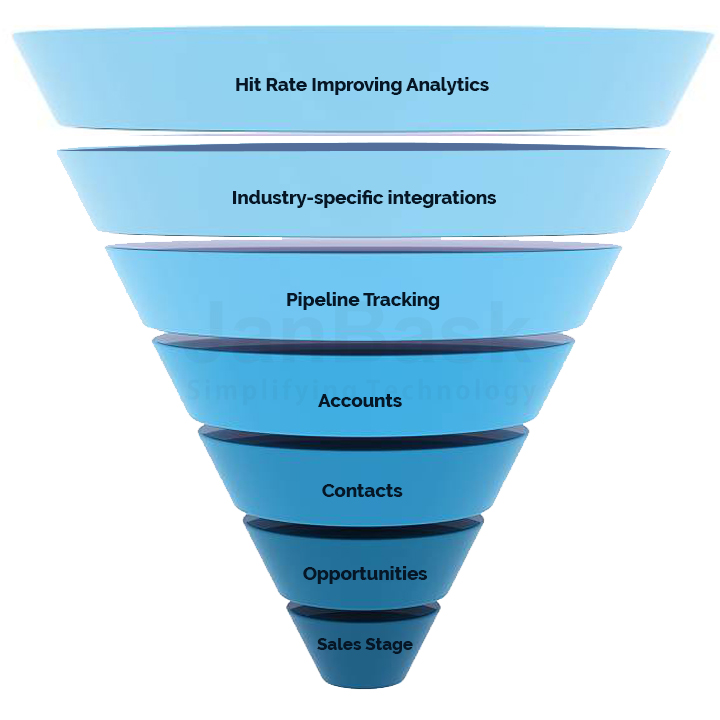
Construction- A core ability-based business that takes into account every minutest detail that there is concerning construction.
Whenever we talk about construction, a picture of a noisy construction site comes to our mind. Construction is not just about that.
Construction is about bidding fir projects, starting them, starting a project management scheme for them, planning a DevOps Strategy for them, and much more.
Today we shall analyze as to how CRM is adding value to the Construction and Engineering business.

To comprehend where your firm has the greatest chances to build an income, a CRM ought to enable you to dissect:
When it comes to CRM, integrations are fantastically significant. However, numerous sellers don’t deal with them well.
Truth be told, 49 percent of CRM clients said coordinating with different frameworks is a test. What’s more, by and by, this figure depends on nonexclusive CRMs and clients from all businesses. That implies your odds of effectively coordinating a conventional CRM with development explicit frameworks are thin. (Think monetary frameworks, similar to Vista by Viewpoint, or undertaking the executive’s frameworks, as Procore Project Management.)
In any case, a CRM made for development will furnish mixes with these administrations, and the sky is the limit from there. That wipes out copy information passage and addresses any information respectability concerns.
A solid pipeline of undertakings being offered is crucial to the wellbeing and long-haul feasibility of any temporary worker. Effective contractual workers need to use their constrained assets to concentrate on the ventures that they have a high level of winning. An excessive number of temporary workers are pursuing undertakings that they have an insignificant possibility of winning, removing the concentration from circumstances that have decent potential. At the point when utilized appropriately, CRM gives perceivability to the board in the accompanying zones so assets and exertion can be centered around winning undertakings that can be won.
By institutionalizing the business procedure, and following key data and all the history, CRM programming can altogether affect the odds of winning an undertaking. This is cultivated by utilizing the accompanying segments found in most CRM programming.
CRM enables an organization to enter all the key data on a “Client” or forthcoming client in a solitary area. All the more significantly, every one of these clients can be ordered by their “Relationship” to the organization. For instance, clients might be arranged by long haul clients or imminent clients. CRM isn’t just for following clients yet can be stretched out to all colleagues for an organization. Subcontractors, Architects, Banks, General Contractors, contenders all can be gone into CRM with the goal that workers can rapidly discover the subtleties on a specific organization, agreement or offer.
By having all colleagues in a solitary programming framework, this data can be utilized during the business procedure to give the organization a total picture of accomplice subcontractors and the designer, proprietor, GC or other important connections to the offer and at last the task. The final product is that presently organizations are “Dealing with” their business utilizing Customer Relationship Management programming as opposed to responding to messages or telephone calls.
Related to the department of Accounts are Contacts. For each Account, a boundless number of contacts can be included with the goal that every one of the players at an organization is recognized. This lessens the islands of data inside an organization when assessing has a few contacts, venture administrators have different contacts, and business advancement has their arrangement of contacts. CRM spans the islands, with the goal that all the data is joined and available. In addition to the fact that you need to comprehend a potential customer’s organization, yet additionally the requirements of the individual leaders.
When an undertaking has been recognized as a practical venture for the offer, CRM makes an Opportunity to follow all the offering data. The open door has key data, for example,
An open door makes it simple to get a quick perspective on the pipeline that an organization is offering and subtleties accessible on each task. This gives the supervisory crews mindful of new business within the valuable data to settle on choices on the ventures being offered, what requirements consideration and where there is an achievement.
CRM additionally institutionalizes business procedures and strategy. Setting up Sales Stages for the open door takes into consideration a predictable way to deal with offering and winning work. A run of the mill deals arrange for development has the accompanying advances:

The business cycle likewise encourages setting up standard errands that should be contended at each period of the business procedure. Think about the assignments as “to do things” that help deal with workers’ time and catch telephone calls, messages, notes and perceptions at each progression of the business cycle. Some CRM programming use the work process to consequently make every one of these undertakings when an open door is made, decreasing the weight on the business group.
From here on you should think about implementing the forces of a CRM within your construction business. JanBask- IT Solutions and Salesforce Consulting is a great CRM and Salesforce advisory that can help you with it. You can drop your business details here for a free discussion with us.
Stop, read and acquire deep insights into complex issues
© 2025 Copyright - JanBask.com | Designed by - JanBask Digital Design
Write a Comment